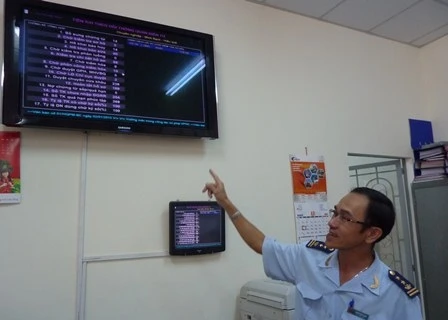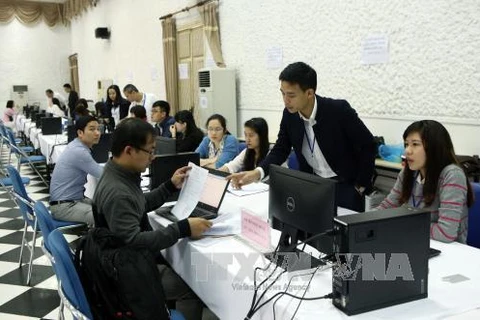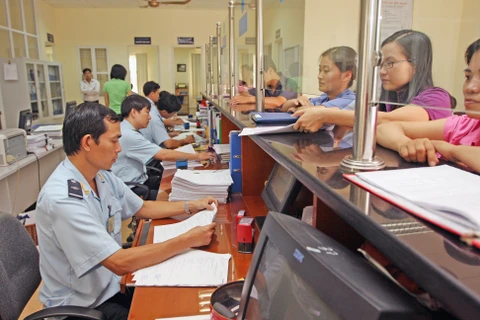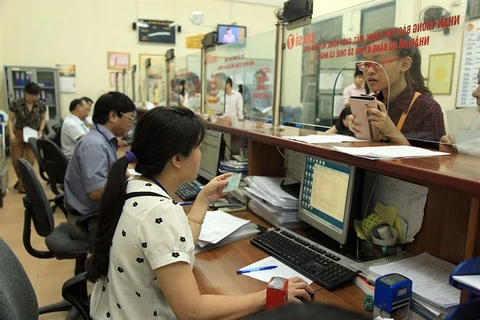Hanoi (VNA) – Vietnam has climbed 11 places to 167th position in terms of paying taxes in the World Bank’s (WB) 2016 Doing Business report.
Paying taxes is one of the criteria the WB uses to rank 189 economies on the ease of doing business.
The improvement was highlighted at a dialogue on taxation and customs policies and procedures held by the Finance Ministry and the Vietnam Chamber of Commerce and Industry in Hanoi on November 28.
The tax sector abolished 32 administrative procedures and streamlined 40 others, according to a report at the event.
The General Department of Taxation inked agreements with 41 commercial banks to carry out e-tax payments nationwide, slashing time needed to pay taxes from 537 hours to 117 hours a year.
Meanwhile, the General Department of Vietnam Customs cut down clearance time from 21 days to 14 days for exported goods and to 13 days for imports.-VNA
VNA

























